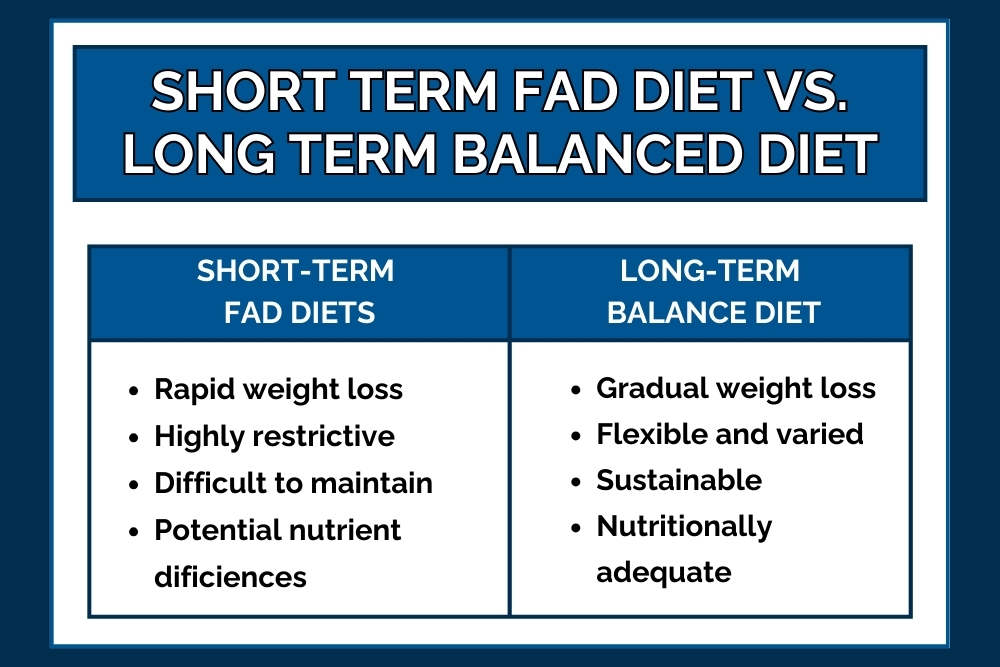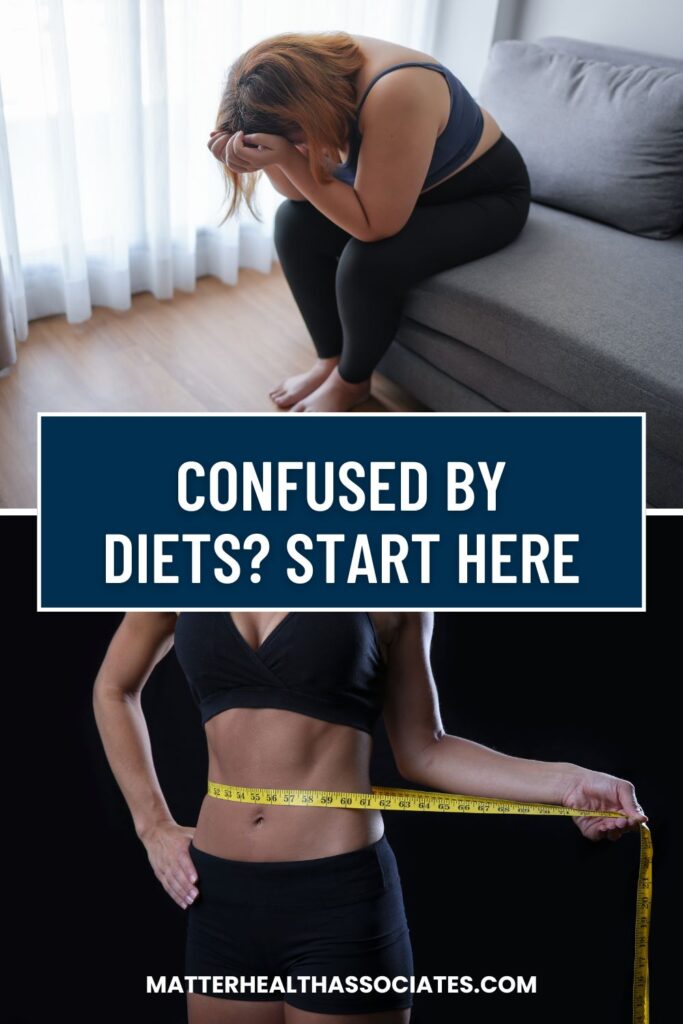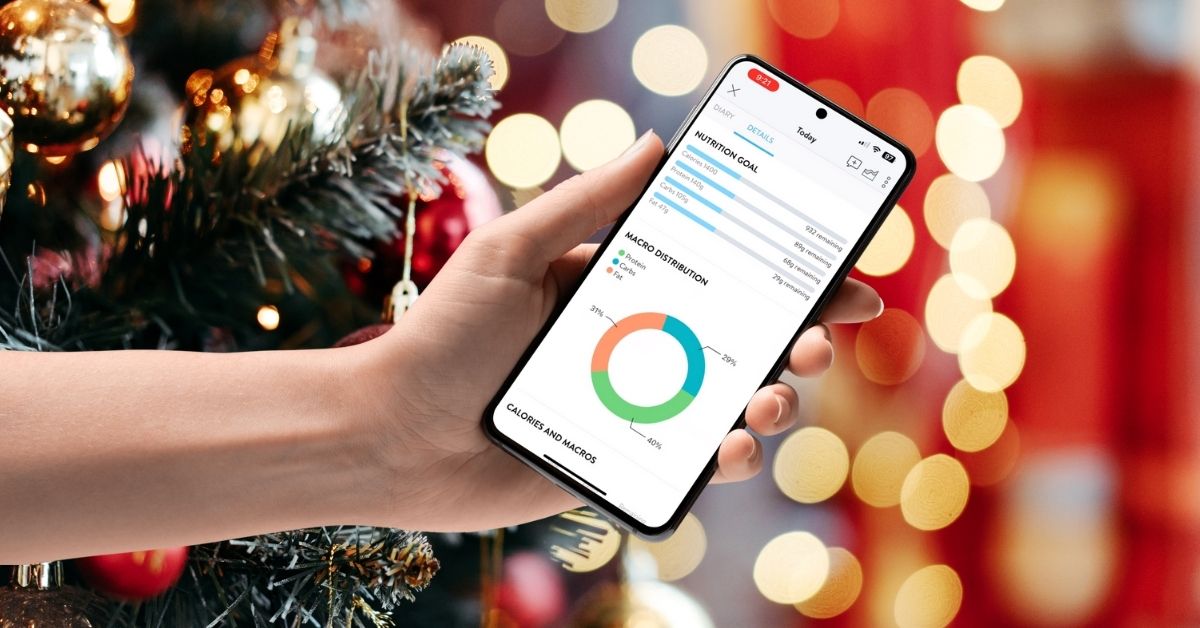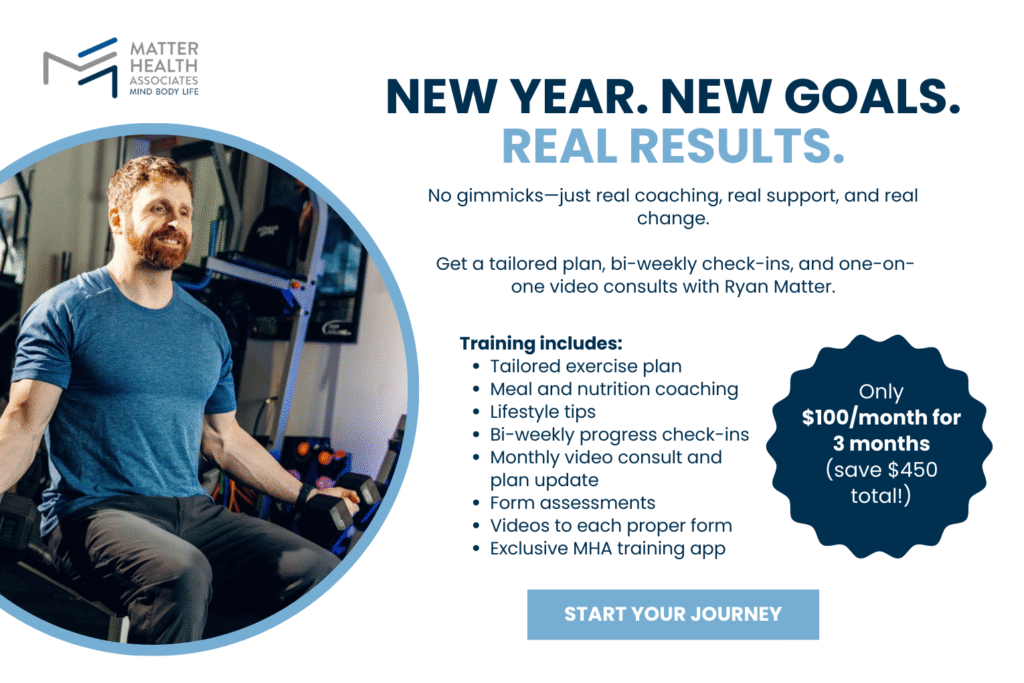Let’s face it, there’s nothing more attractive than seeing a diet that advertises losing 10, 15, 20, or even 50 pounds in a short amount of time. South Beach Diet, Weight Watchers, Macro Counting, Atkins, Intermittent Fasting, and others are in the face of the public eye when it comes to common diet plans. When one of our friends and co-workers start a diet and say how good they feel and how much weight they lost, it often encourages us to want to do the same programming. Seeing weight come off a scale can be just as addicting as any drug or chemical ever made. The fact of the matter is unfortunately, if it seems too good to be true, it is too good to be true. So why do we continue to fall into the same recycled fad diets that show us such false-negative results of our health that is only dictated by the scale? We usually fall into these diets when we are at a compromised state in our health, when we are feeling lost and impulsive. This article is not to pick on all these diets but to investigate the weight that is really being lost and what is happening physiologically in our bodies.
Society has unfortunately defined weight loss as a short term and intense process that must be incredibly calculated. These diets are often a restricted process that factors in zero ideas of sustainability and progression as well as safety and effects to metabolic health. As a matter of fact, these diets often last only a few short weeks or months. Have you ever met a person who continually lives on a no carbohydrate diet, and doesn’t feel restricted or feels an evolution of their health? Not to say this person doesn’t exist, but most people are on a roller coaster ride of eating when they are trying one of these diets.
Nutrition Science is a very evolutionary field that often gives contradicting information. In the 80’s, diets were all about low fat and no fat. Fast forward to today, and carbohydrates is now the picked-on macro nutrient. One day you hear orange juice is good for you because of its vitamin properties and carbohydrate needs for balance and energy, and the next day you hear orange juice has too many carbohydrates and sugars, which makes us at risk for diabetes and weight gain. One day you hear a plant-based diet is the best diet, eliminating all meat, while the next day the carnivore diet takes the lead saying to only eat meat; vegetables are the enemy. One year you hear small meals consumed frequently is the best method of weight loss, and now intermittent fasting is leading the way: eating between timelines with a limited amount of food and meals.
Thus, the magic question is, what must you do to make the best nutrition decision for yourself that is not only effective, but healthy? The biggest part of the answer to that question is that most people miss is what is truly most healthy for you. Unfortunately, diet marketing is based strictly on aesthetics of the human body and body mass loss using only a simple bathroom scale.
Most people don’t realize that a scale doesn’t show us much of anything in metabolism other than the loss of total weight in the body. Organs, water, cells, bone, cartilage, tendons, hair, food mass in your stomach, ligaments, blood, glands, connective tissue, fecal matter, glycogen, various types of muscle, various types of fat, mineral and vitamin nutrients, and more all constitute and make up weight that is on a scale. Can you lose tendon weight? Not necessarily, but you can lose nutrient absorption in the fulfillment of body components like bones, muscles, organs, etc., that, believe it or not, make up total weight. It is possible to make bones and joints more brittle, which could lead to weight loss as well, which we don’t want.
Not to confuse anyone, but the point is most of these fad diets are just taking water and nutrients out of these internal body components initially, which makes us lighter on a scale. As the numbers on the scale drop and makes us feel better, it isn’t necessarily helping our metabolic health thus making our bodies function better. All this short-term weight loss, which makes us feel good initially, is not the real deal in terms of losing fat.
Low to no carbohydrate diets will often make us lose a lot of weight at first because carbohydrates hold water molecules, which instantly shows weight loss. As time goes on, people may lose more weight because they cut calories, but often atrophy (loss of muscle) happens cutting nutrients and hydration to the body. Low carbohydrates diets are not necessarily unsafe for some people but can be dangerous for others.
Intermittent fasting is popular because it shows a control of eating in a time window. As a person cuts caloric intake by skipping meals, they may show an increase in energy and feel better, assuming their body is off balance by being overweight. In the long run, when the body needs more fuel, people often have dizziness and alertness issues because of limited fuel stores. This restricted eating is not anorexia, but since you are still not eating meals as a whole, it’s arguably comparable to a degree for some extreme cases. Atrophy is also associated with these kinds of diets because the body starts to eat muscle tissue away for energy production.
Weight Watchers cuts calories and helps us still eat the foods we love in a controlled fashion. As cutting calories of good quality food is not always the need, Weight Watchers helps to teach people portion control over not-so-healthy choices. Not to knock all these diets as they often are great starters for someone becoming healthy, and in some cases if done safely, they may be okay. Conversely, tailored individualized eating with sustainability is the key to ultimate health and fitness in eating.
If this is the case, then what is the best step to start making the best nutrition decisions for ourselves? Believe it or not, you can start as simple and easy as you can imagine. The best diets ever recorded are usually answered by saying, “I am just eating better.” The ultimate diet is truly one’s own personalized eating plan that consists of good quality foods consumed in a controlled manner. Some of these foods can be various types of vegetables, fruits, lean meats, fish, nuts, lentils, grains, and more. The perfect eating plan does not exist, however. When actively engaged, it is built upon and progressed in a lifetime of study. A good diet may also have some wiggle room for some controlled eating of “fun food” too!
Ultimately, everybody has different needs based upon different variables. Some of these variables are body types, current metabolism, genetics, culture influences, socioeconomic status, internal biometric health, digestion/absorb ability, pathology, likes and dislikes of foods, psyche of food pharmacology/drug use, energy expenditure, sleep patterns, and more. For example, someone who works third shift will have different eating patterns than someone who works first shift. Someone who gets stressed and emotionally eats will have a different plan than someone who gets stressed and doesn’t eat. Genetic, psychological, and physiological factors must all be considered when finding what eating plan works for you.
What do we advise at MHA? Start simple and follow your instincts, which is a lost sense in humans when considering eating. Do you ever have a true physiological craving of carbohydrates after you were very active? I am not talking about a comfort eating of chocolate, but a true need of energy for muscle storage. To illustrate, animals eat instinctively based upon the weather outside, how much activity they did, as well as other factors. Have you ever seen an overweight deer trying to calculate how many carbs it can eat and at what times of the day it is allowed to eat? These considerations are often forgotten when being overshadowed by these objectively calculated flashy diets that only use segments of science like ketosis, which doesn’t really mean much.
Overall, the best diet will always originate from a basic diet then is tailored for that specific person while being evolved and sustained. A great nutrition plan must always factor in schedule change, major life changes, stress, sickness, resources changes, and more. The ultimate diet is also forever changing from day to day. It is diverse, and its goal is to encourage balance of all nutrients needed for that person daily. The more nourished a body is on an everyday basis, the better overall metabolism and immunity that exists.
The fact that no one wants to hear is that fat loss and muscle gain can take months to years. Even if there is a significant weight loss in the beginning that is needed, it’s only a balance of retention to get the metabolism back to normal. Regardless of your weight-loss stage, time will come at its own pace as slow and steady wins the race. The best nutrition plans should be assessed every year on January 1 to see the progression of the positive changes you made. Did you diversify your foods? Did you learn more about foods? Did your body composition change? Did you find foods that resulted in positive or negative effects for you?
Meanwhile, start simple by being conscious of chewing your meals of balanced food groups and sipping water with each meal. Start your plan by segmenting on only sections of nutrition and eating, like hydration, and work on that. If you are only used to drinking one bottle a water a day, move up to 2 bottles of water a day. Stay there for a week then move up to 3 bottles of water a day a month later. Once hydration is established then move onto adding more vegetables in your diet. Start your eating plan by eating good quality food like fruits and vegetables that you know you like. Maybe this is just eating broccoli with cheese whiz, and that’s okay. As you advance on your eating plan, take away the cheese whiz and find ways you can eat broccoli that you don’t need such heavy seasoning or flavor altering. Using this methodology helps to instill patience and will help you stay in it for the long run.
It’s important to keep up with current events of nutrition, but only use this information to enhance what you know about your nutrition plan. What you do not want to do is totally change what you already know works. Even identifying the misinformation wrong in fad diets helps you understand the correct way to eat while helping to give you confidence and security in your own diet.
In the end, a balance of eating in terms of protein, carbs, and fat, along with micro nutrient needs, will always be different from day to day, and person to person, based upon their activity, lifestyle, body types, and other factors. It’s up to us as individuals to take control and create relationships with foods trying to advance our understanding of what foods our bodies need for optimal functions. Regardless of what your eating plan is, if you know it works for you, you don’t need to justify it to anyone else.









